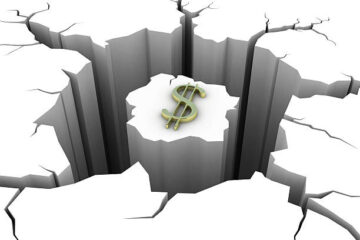The luxury vehicle manufacturer is trying to cement its dominance in the electric car market.
This is undoubtedly news that will relieve Tesla’s (TSLA) – Get Tesla Inc Report rivals because it thwarts the electric vehicle manufacturer’s plans to increase its market share. Its chief executive officer Elon Musk seemed to have aligned the pawns well to keep Tesla’s rivals in the very lucrative market of electric vehicles at bay.
Tesla has started officially delivering vehicles from its new factory near Berlin, Germany. The group is due to inaugurate its fourth production plant in Austin, Texas on April 7. And in addition, Tesla has managed to forge agreements with producers of nickel, a key metal in the development of batteries.
These agreements notably allow the firm to better manage its supply chain at a time when there is a great imbalance between supply and demand for raw materials, the prices of which soared after the Russian invasion of Ukraine. Russia is a major nickel producer.
But all this beautiful building is in the process of cracking somewhat. Indeed, Tesla has just informed its employees and suppliers that its Shanghai factory in China will continue to remain closed.
Shanghai Plant Remains Closed
In a memo, Musk’s company told employees in China on Sunday that they should stay home as government restriction measures in Shanghai to limit Covid-19 infections remained in place. Tesla also asked its employees to continue to respect and follow the rules within their communities.
This decision dashed hopes raised by a report from Reuters which had announced a little earlier that Tesla intended to reopen this factory which produces 6,000 Model 3 sedans per week and 10,000 Model Y SUVs.
Reuters said that the U.S automaker was aiming to resume production on Monday, April 4, as it expected to see its first batch of workers released from a lockdown the city imposed to combat a surge in Covid-19 cases.
Production has been halted at Tesla’s Shanghai factory since March 28.
Shanghai is at the center of a new surge in Covid-19 cases in China, with more than 8,000 new Covid infections reported in the city on Saturday, including 7,788 asymptomatic infections.
China has locked down Shanghai, its largest city, to conduct Covid-19 testing. Shanghai authorities said they would divide the city in two for the testing, using the Huangpu River that passes through the city as a boundary. The eastern part of the city, where Tesla’s factory is located, remained in tight lockdown.
Tesla has hoped that these restrictions would only last a few days but they seem to be prolonged, which has forced the group to repeatedly postpone the reopening of this factory which serves both the local and international markets — Asia and Europe.
“This was an *exceptionally* difficult quarter due to supply chain interruptions & China zero Covid policy,” Elon Musk said in a tweet on Saturday, despite the fact that the firm delivered a record number of vehicles in the first quarter.
Big Impact on Tesla Production
Tesla delivered a record 310,048 new cars over the three months ending in March, the company said, up 67.8% from last year.
Production actually fell, however, to 305,407 vehicles compared to the 305,840 tally recorded over the final three months of last year, thanks in part to supply chain disruptions and Covid-related closures at its Shanghai factory.
The Austin-based company closed production in the Shanghai facility last month for two days on March 16 as the government tightened restrictions because of a rise in Covid omicron cases. It reopened it but shut it down again on March 28.
The direct consequence is that consumers who hoped to receive their vehicle soon will still have to wait. In addition, it reduces the stocks of vehicles available, which is likely to create an imbalance between supply and demand, ultimately creating a price spike.
The company hopes to be able to satisfy this strong demand with production at four factories, but the temporary closures in Shanghai make this objective difficult.
Tesla’s Shanghai factory, which opened in January 2020, produced 56,515 electric vehicles in February, with 33,315 targeted for export, according to official data. The factory, which is Tesla’s largest production site, is being ramped up to eventually produce 1 million EVs each year.
Tesla is expected to deliver more than 1.42 million vehicles this year, anticipate industry sources.
The company is not the only automaker to have been forced to suspend production in China. Volkswagen (VWAGY) – Get Volkswagen AG Report made a similar decision.


